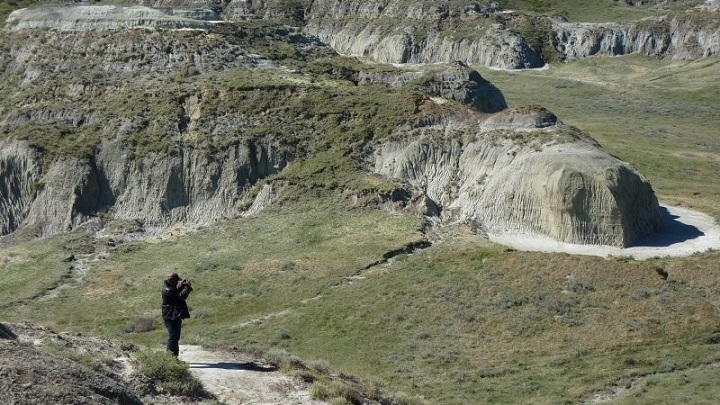One of Saskatchewan’s popular tourist spots is shutting down access to visitors.

Castle Butte is closed for at least April and May due to calving season.
The tourist destination is located inside Charla Holbrook’s calving pasture. In a Facebook post, she said the “extremely high” number of visitors has put a strain on her animals.
“The cattle use the area where the butte is as protection from the wind and elements every day during calving season,” Holbrook said in her post.
“The cattle are afraid of this area because of the extreme number of people there every day.”
Babies are being born away from the shelter of the hills, which she said is not safe for them.
“We are sorry for any inconvenience… please spread the word to help people avoid driving out here only to be turned away,” Holbrook wrote.
- Posters promoting ‘Steal From Loblaws Day’ are circulating. How did we get here?
- Video shows Ontario police sharing Trudeau’s location with protester, investigation launched
- Canadian food banks are on the brink: ‘This is not a sustainable situation’
- Solar eclipse eye damage: More than 160 cases reported in Ontario, Quebec
The Castle Butte website also said the decision to close came from the provincial government’s COVID-19 restrictions, limiting social gatherings.
Questions about COVID-19? Here are some things you need to know:
Health officials caution against all international travel. Returning travellers are legally obligated to self-isolate for 14 days, beginning March 26, in case they develop symptoms and to prevent spreading the virus to others. Some provinces and territories have also implemented additional recommendations or enforcement measures to ensure those returning to the area self-isolate.
Symptoms can include fever, cough and difficulty breathing — very similar to a cold or flu. Some people can develop a more severe illness. People most at risk of this include older adults and people with severe chronic medical conditions like heart, lung or kidney disease. If you develop symptoms, contact public health authorities.
To prevent the virus from spreading, experts recommend frequent handwashing and coughing into your sleeve. They also recommend minimizing contact with others staying home as much as possible and maintaining a distance of two metres from other people if you go out.
For full COVID-19 coverage from Global News, click here.










Comments